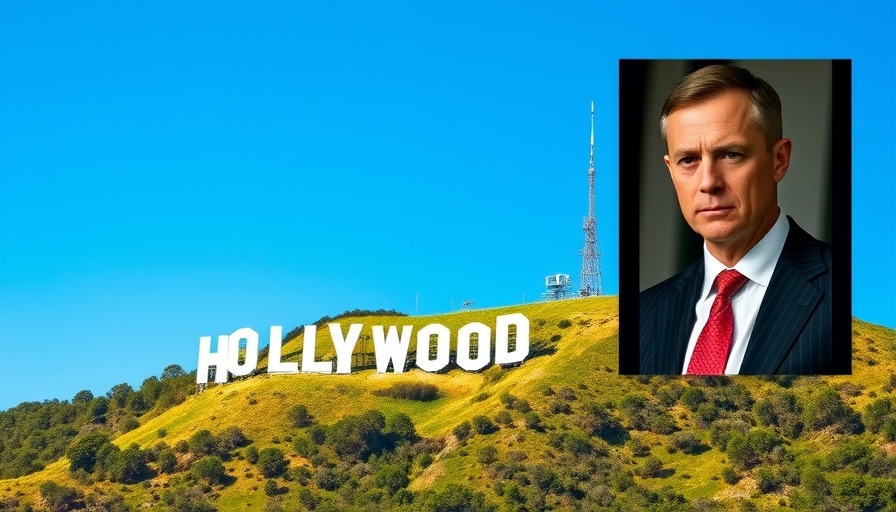
The Bold Move Against Foreign Films
In a surprising announcement, former President Donald Trump declared a staggering 100% tariff on all foreign-produced films, asserting that "WE WANT MOVIES MADE IN AMERICA, AGAIN!" This bold statement signals a powerful shift in America's approach to international trade in the entertainment industry, possibly echoing broader sentiments about American sovereignty.
Why the Tariff Matters
Trump's comments reflect his belief that Hollywood is facing severe competition from international markets, using the phrase "is DYING a very fast death" to describe the current landscape of American cinema. With streaming platforms teeming with content from around the globe, that dire assessment may well resonate with parts of the public who feel that American tastes are being overshadowed by foreign productions.
Historical Context: The Rise of Global Cinema
The entertainment industry has seen a significant evolution over the past few decades. The advent of global streaming services has intensified competition, allowing foreign films to penetrate markets that were once dominated by Hollywood. As audiences increasingly embrace international content, questions arise about the resilience of American-made films. Trump's tariff could be interpreted as an attempt to bolster local production against international influences.
Implications for the Film Industry and Economy
The new tariff is positioned to impact not only the way films are produced in the U.S. but also the broader economy. By incentivizing domestic film production, supporters argue that it could lead to job creation within the industry. Conversely, critics worry that such tariffs could drive up costs for consumers and limit the diversity of content available, ultimately harming the very industry Trump aims to support.
Opposition and Support: A Divided Response
In the wake of this announcement, responses from the political spectrum have been predictable. Supporters hail the tariff as a reassertion of American values, aiming to protect local jobs and culture. Meanwhile, opponents argue that this move could lead to retaliatory actions from foreign governments, further escalating trade tensions and affecting U.S. exports in other sectors.
Future Trends: The Evolution of Viewing Habits
As global cinematic tastes evolve, streaming platforms have changed how audiences engage with content. This raises critical questions about the future of film distribution and production. Should the tariff succeed in increasing domestic film output, what might the landscape look like in five years? This is a pivotal moment in shaping the next era of cinema.
Your Take on the Tariff
What do you think about the proposed 100% tariff on foreign-produced films? Will it effectively revitalize American cinema or limit consumer choices? Engaging in this dialogue is essential as we navigate these changes together.
This article reflects the ongoing debate surrounding nationalism and globalization in today's economy. It emphasizes the significance of understanding how policies shape our cultural landscape. Stay informed, engage with your community, and consider the implications of these shifts.
 Add Element
Add Element  Add Row
Add Row 



 Add Row
Add Row  Add
Add 


Write A Comment